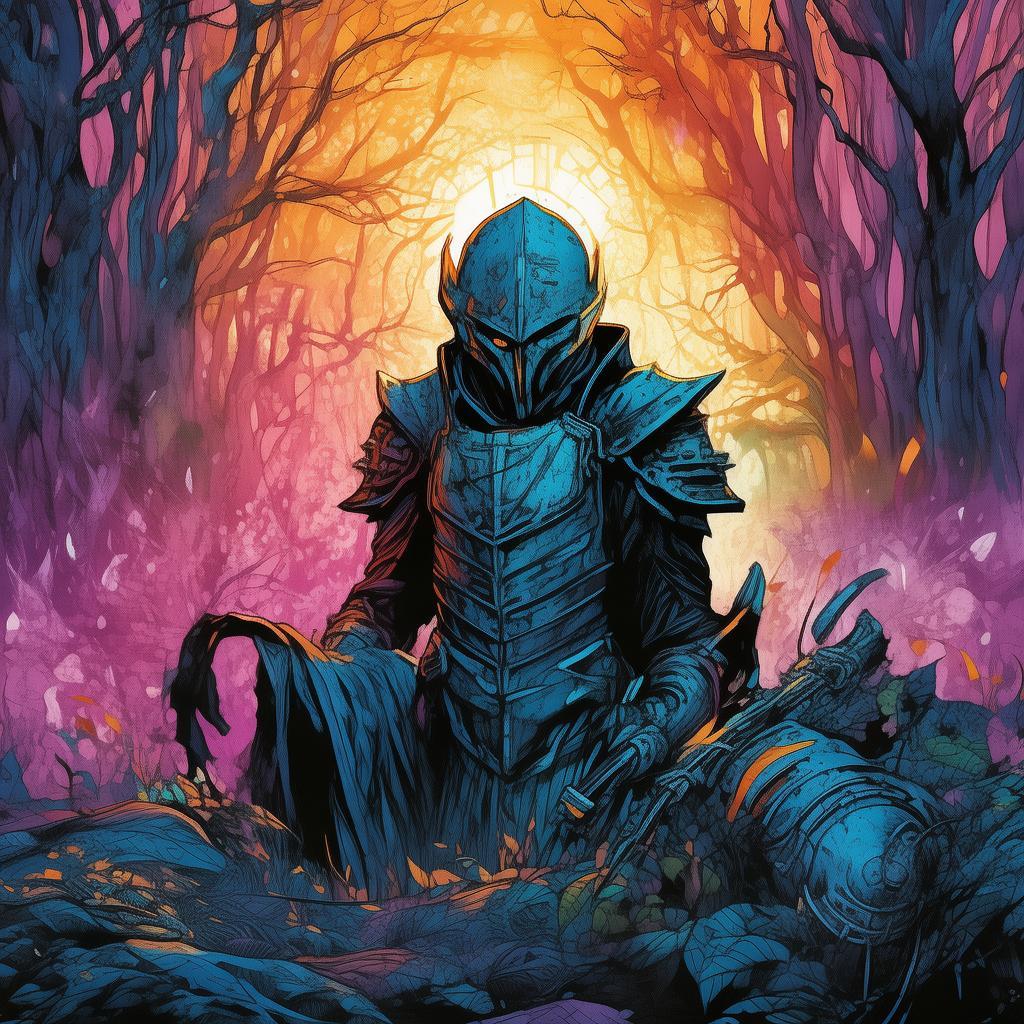The Elysian Pursuit: A Father's Odyssey in the Afterlife
In the ancient world, where the whispers of gods and mortals intertwined, there lived a man named Andronikos. A man of many virtues, he was also a man of many regrets. His life was a tapestry woven with threads of love, honor, and the bitter taste of loss. Andronikos was a father, a name that, in his twilight years, had become a beacon of hope amidst the shadow of his past.
The tale begins with Andronikos' final breath, a breath that was to be his entry into the afterlife. But as his soul ascended, it was met not with the serene Elysian Fields, but with a maelstrom of confusion and despair. The guardians of the afterlife, the Fates, had made a grave mistake. Andronikos was to be judged not for his life, but for his death—a death that had been as much a testament to his love as it was to his folly.
The Elysian Pursuit was his quest, a journey through the afterlife to correct the Fates' erroneous judgment. It was a journey that would test the very fibers of his being, a journey that would force him to confront the shadows of his past and the love he had lost.
Andronikos' first trial was the River Styx, a river that, according to legend, separated the living from the dead. But Andronikos was not allowed passage. Instead, he was forced to traverse the river on the back of a winged horse, Pegasus, a creature of myth and legend. The river was a mirror of his soul, reflecting the turmoil within. As he rode, he was haunted by the memories of his daughter, Euphrosyne, who had been taken from him in a cruel twist of fate.
The second trial was the Fields of Asphodel, a desolate place where the souls of the unremarkable and the forgotten wandered aimlessly. Here, Andronikos encountered the specters of his past, the men he had wronged, the woman he had loved, and the child he had failed. Each specter held a piece of his past, a piece that he had tried to leave behind but could not escape.
The third trial was the labyrinth of the Minotaur, a place of endless twists and turns, a place where the Minotaur, a creature of myth and legend, awaited. Andronikos, armed with nothing but his wits and the memory of his daughter's smile, entered the labyrinth. The Minotaur, a representation of his innermost fears, was a creature of his own making, a creature born from the shadows of his soul.

As Andronikos faced the Minotaur, he realized that the creature was not his enemy but a reflection of his own humanity. He fought not with weapons but with the strength of his love for Euphrosyne. In the end, it was not the Minotaur that defeated him, but his own resolve. He emerged from the labyrinth a changed man, his heart lighter, his spirit renewed.
The final trial was the judgment by the Fates themselves. Andronikos stood before them, his soul exposed, his past laid bare. The Fates, with their cold, unyielding gaze, considered his life. And then, in a twist that was both unexpected and just, they decreed that Andronikos would be allowed to return to the world of the living, to complete his journey and to make amends for his past.
As Andronikos descended back into the world, he carried with him the lessons of his journey. He found Euphrosyne, now a grown woman, and they shared a bond that transcended time and death. He made amends with those he had wronged, and he lived his life with a newfound purpose and a heart full of love.
The Elysian Pursuit was not just a journey through the afterlife; it was a journey of self-discovery, a journey that taught Andronikos that love, even in the face of loss, is the greatest power of all.
✨ Original Statement ✨
All articles published on this website (including but not limited to text, images, videos, and other content) are original or authorized for reposting and are protected by relevant laws. Without the explicit written permission of this website, no individual or organization may copy, modify, repost, or use the content for commercial purposes.
If you need to quote or cooperate, please contact this site for authorization. We reserve the right to pursue legal responsibility for any unauthorized use.
Hereby declared.









